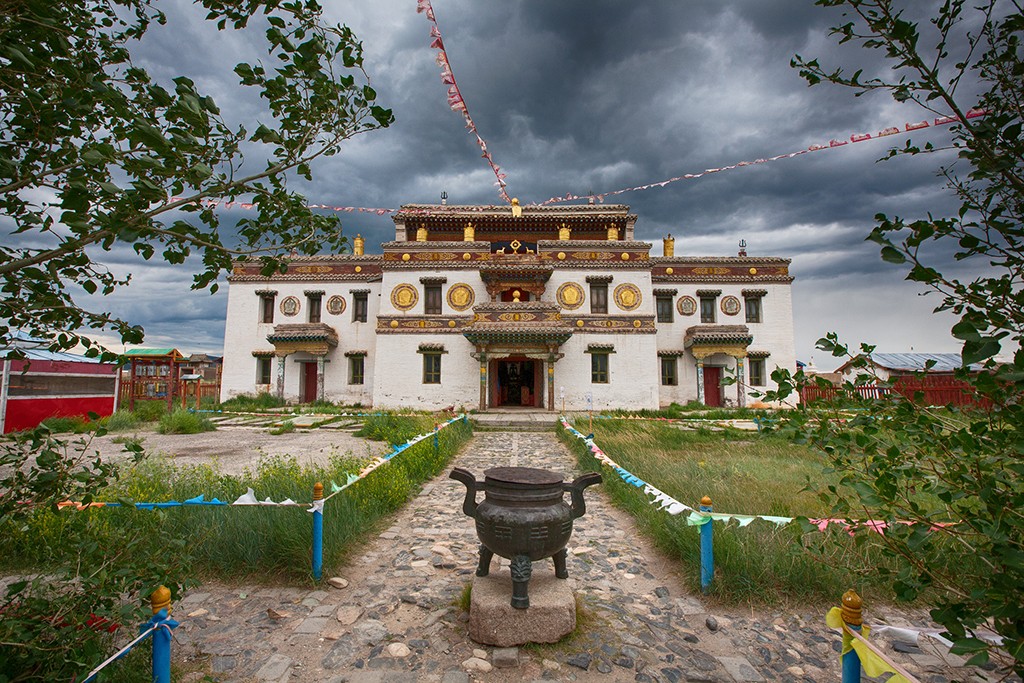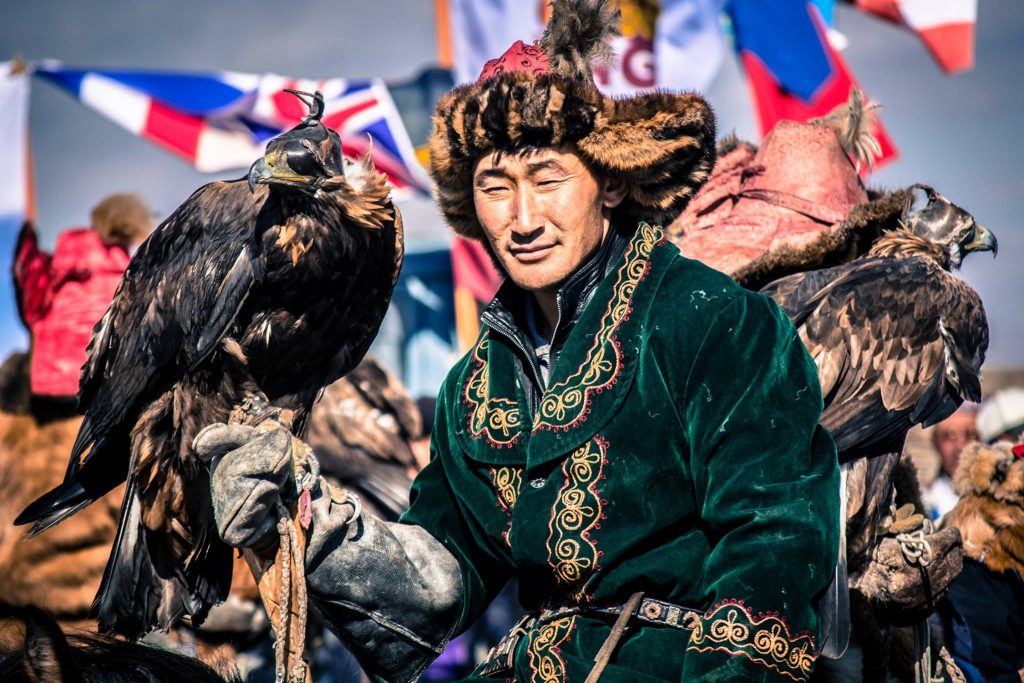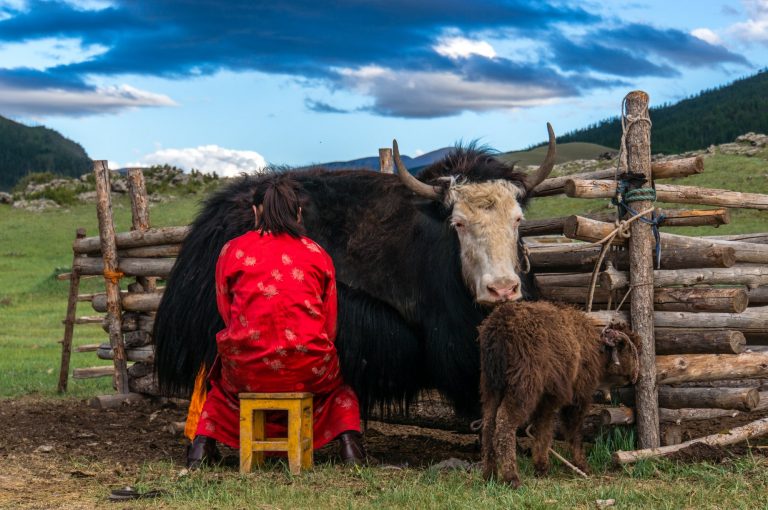Autumn in Mongolia: A Season of Colour, Culture, and Adventure
When people ask me which season I recommend most in Mongolia, I always say autumn. The landscapes blaze with colour, the air turns crisp, and a calmness settles after the summer rush. It’s a season of contrasts – hard work and quiet moments, history and daily life, adventure and stillness – all woven together into something unforgettable. In this post, we share ideas on how and where to make the most of autumn in Mongolia.

Table of Contents
Autumn in Mongolia: The Perfect Time to Explore
Autumn in Mongolia feels different. In places like Khentii Province, the mountain-forest steppe turns into a patchwork of reds, yellows, and golds. Herding families are busy repairing winter shelters, cutting hay, culling animals, and branding young horses – the yearly rhythm of preparing for the long cold months ahead. For travellers, the air is crisp, the skies impossibly clear, and with summer visitors gone, a calmness settles over the landscape, making it one of the best times to explore. Better still, international flight prices often dip, making autumn an even more appealing season to visit. Here are some of our suggestions on what to see and do – and perhaps you’ll choose to join us.
DO: Take The Train
Although limited by Mongolia’s railway infrastructure, Mongolia’s train routes add a unique and memorable dimension to any travel experience. These journeys offer a nostalgic and scenic way to explore the country’s landscapes, providing you with a different perspective and a unique mode of transportation that enriches the overall adventure. You can enjoy either a day or overnight journey in second-class compartments. These compartments, each with four beds and clean bedding, are perfect for relaxing and taking in the passing scenery as you travel through diverse landscapes from steppe to desert.
You can head south to Sainshand, the provincial capital of Dorngobi Aimag. From here, it’s a short transfer to Khamariin Khiid Monastery, a spiritual centre and place of pilgrimage for Mongolians and Buddhists alike. Established in the 1830s, it is believed to be an energy centre known as Shambala, created around the cult of Danzan Ravjaa, the monastery’s founder. The site offers views over the Gobi Desert and is a must-visit for those seeking spiritual connection and natural beauty.

Alternatively, head north by train through Selenge Province, named after Mongolia’s principal river, the Selenge. This journey will take you through river basins, forested steppe, and fertile agricultural lands, showcasing the rich diversity of Mongolia’s natural habitats.
Or, if short on time, take the train to either Darkhan or Erdenet. While these cities may not be on the usual tourist radar, they provide insights into the everyday lives of Mongolians and a slower pace of life which allow you to explore Mongolia’s modern development while still being close to nature. By visiting Darkhan or Erdenet, you can gain a deeper understanding of Mongolia’s diverse regions and communities, making for a more enriching and well-rounded travel experience.
DO: Road Trip Through The Gobi
The Gobi Desert is one of Mongolia’s most iconic regions, known for its dramatic landscapes and historical significance. Autumn brings cooler temperatures, making it the perfect time to explore this extreme environment, which can be almost unbearable in the summer heat. Whether you choose to camp or stay in a local ger, the quieter autumn season offers a more serene experience, free from the larger tour groups that populate the region during the summer months.

The Gobi covers five of Mongolia’s provinces: Ömnögovi (South Gobi), Dornogovi (East Gobi), Dundgovi (Middle Gobi), Govi-Altai, and Bayankhongor. While the South Gobi is the most popular, the cooler autumn weather invites exploration of the lesser-visited areas. These provinces encompass vast gravel plains, rugged mountains, and unique ecosystems, home to various wildlife species and herding communities. For a truly epic adventure, consider combining a visit to the Gobi with a trip to Western Mongolia.
DO: Spend time in the Orkhon Valley
Kharkhorin and the Orkhon River Valley a UNESCO World Heritage Site and the ancient capital of the Mongol Empire, is one of the best places in Mongolia to experience the country’s nomadic pastoral traditions. For those wanting a little more adventure, while it’s a popular destination, the true beauty of the Orkhon Valley lies in its vast landscapes, perfect for exploration on horseback, bike, or on foot. If you want more comfort, Kharkhorin offers both hotels and ger camps that remain open into the late autumn. Alternatively, immerse yourself in cultural traditions with a rural homestay and gain an insight into the lives of local herders and how they adapt to modern challenges by developing micro-businesses. Staying with a herding family offers a unique insight into the Mongolian way of life, where ancient traditions blend with the realities of the modern world.

VISIT: Western Mongolia
Western Mongolia is home to the Kazakh people, Mongolia’s largest ethnic minority, known for their tradition of hunting with eagles. During autumn, eagle hunters gather for local festivals that celebrate Kazakh culture and preserve the ancient art of eagle hunting. These festivals are vital for the local community, providing cultural pride and much-needed income in one of Mongolia’s most remote regions.
While domestic flights to Western Mongolia can be expensive and book up quickly, the public bus from Ulaanbaatar to Khovd or Ulgii offers an affordable and comfortable alternative, albeit a long 20 – 24 hour journey. The bus makes regular stops, allowing you to stretch your legs and take in the changing landscapes.
Attending an eagle festival is a once-in-a-lifetime experience that will leave you with great memories. Find out more about the eagle festivals here.

VISIT: Khentii Province
Khentii Province, renowned for its rugged dirt roads that become a muddy challenge during the wet summer months, transforms into a perfect autumn destination once the roads have dried and the forest steppe is painted with the vibrant colours of the season. This off-the-beaten-track region offers a refreshing, cool escape rich in history, culture, and natural beauty, from the serene Baldan Breeviin Khiid Monastery, nestled in the heart of Khentii, to the Buriat town of Dadal, where you can indulge in local delicacies like fresh Buriat bread and ‘khaliartai khuurshuur’—savory specialties that are as unique as they are delicious.

Khentii is not only rich in natural beauty but also steeped in history as the birthplace, childhood home, and coronation site of Chinggis Khaan. It’s also believed to be his final resting place. To fully immerse yourself in the legacy of Mongolia’s greatest leader, combine your visit to Khentii with a visit to the Chinggis Khaan Museum in Ulaanbaatar and a trip to Tsonjin Boldog, where the awe-inspiring 131-foot statue of Chinggis Khan stands tall, overlooking the vast Mongolian landscape.
Alternatively, if your time is limited, consider a visit to Gun Galuut Nature Reserve. Located just 130 km from Ulaanbaatar, this small yet diverse reserve covers an area of 200 km² and surprises visitors with its varied ecosystems, where the expansive steppes reflect the endless sky. Gun Galuut is an ideal destination for those seeking a quick yet immersive escape into Mongolia’s natural beauty.
Another possibility is Gorkhi-Terelj National Park. While it’s the closest park to Ulaanbaatar and parts are heavily developed, the wilder hinterlands tell a different story. Here, a slow-paced autumn homestay offers a more authentic experience, especially for those who love to explore on horseback.**
Essence Of Mongolia | Sept 6 2026 | 14 Days
Autumn in Mongolia is about contrasts. It’s also one of the best times to come if you want space, colour, and a real sense of the country.
If you’d like to start planning an autumn journey, get in touch.
Jess @ Eternal Landscapes







